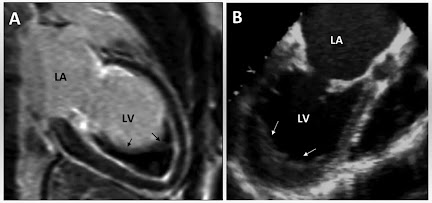Aasgaduli.blogspot.com
Thyroid gland - it is composed of two lobes which are located on either side of the trachea. Both the lobes are interconnected with a thin flap of connective tissue called isthmus.
It consists of two types of cells F cells (2.5-3 millions) and c cells. It weights about 20 to 40 gm in adults. Thyroid is larger in females than in males. The structure and the function of the thyroid gland change in different stages of the sexual cycle in females. Its function increases slightly during pregnancy and lactation and decreases during menopause.
★Iodine is essential for the normal rate of hormone synthesis in the thyroid.…
1.Tetraiodothyronine or Thyroxine (T4)
2.Triiodothyronine (T3)
Download complete Endocrinesystem
For any mistakes you can comment in comment box. I will trying correct these mistakes.
Download book ( physiology symbulingum)
Function : Two major effects on the body…
1.To increase the over all metabolic rate in the body.
2.Stimulate growth in children.
3.Increase mental alertness.
4.Increase heat production.
5.Increase growth of the body.
6.Thyroxine function on protein metabolism.
★Increase transcription of DNA
★Increase production of mRNA
★Increase process of translation.
7.Thyroxine functionon carbohydrate metabolism…
★Breakdown of glycogen into glucose.
★Increase glycolysis.
★Increase mitochondrial enzyme activities for
production of energy.
8.Thyroxine function on fat metabolism…
★Decrease phospholipid cholesterol in the body.
★Increase fatty acid in plasma.
★Increase fat deposition in liver.
★Increase cholesterol secretion in bile.
★Decrease adipose tissue in skeletal system.
9.Increase blood production mainly RBCs
10.Increase CNS (central nervous system) activities.
11.Increase mental development in childhood.
OR
1. Effects on bone: these hormone act on bone for growth and maturation .
2. Effects on CNS : Before birth it helps in development of brain and after birth it helps in development and maturation of brain.
3. Effects on blood: whenever developed hypothyroidism than also developed normocytic hypochromic anemia.
4. Effects on mineral metabolism : whenever developed hyperthyroidism which associate with osteoporosis.
5. Effects on carbohydrate metabolism: it increase the sugar level in blood by increase gluconeogenesis and glycogenolysis.
6. Effects on lipid metabolism: it increase the level of lipid in blood by the lipogenesis.
7. Effects on protein metabolism : it helps in anabolism and catabolism of proteins.
8. Increase oxygen uptake : it increase oxygen uptake by the increase BMR.
9. Effects on temperature : it increase temperature by the stimulation of adrenalin which is responsible for thermogenesis (production of heat).
10. Effects on growth and development : it is responsible for development of physical, mental and sexual growth.
★ It also secretes a protein hormone from It's parafollicular cells called thyrocalcitonin.
★Thyrocalcitonin : Regulates the blood calcium level or reduces blood calcium level.
Applied :
Hypothyroidism :Less secretion of T3 & T4
Goitre : Deficiency of iodine
Hyperthyroidism : Excess secretion of T3 & T4 Cretinism : Stunted growth mental retardation
Thyroid glands
Thyroid gland - it is composed of two lobes which are located on either side of the trachea. Both the lobes are interconnected with a thin flap of connective tissue called isthmus.
It consists of two types of cells F cells (2.5-3 millions) and c cells. It weights about 20 to 40 gm in adults. Thyroid is larger in females than in males. The structure and the function of the thyroid gland change in different stages of the sexual cycle in females. Its function increases slightly during pregnancy and lactation and decreases during menopause.
★Iodine is essential for the normal rate of hormone synthesis in the thyroid.…
1.Tetraiodothyronine or Thyroxine (T4)
2.Triiodothyronine (T3)
Download complete Endocrinesystem
For any mistakes you can comment in comment box. I will trying correct these mistakes.
Download book ( physiology symbulingum)
Function : Two major effects on the body…
1.To increase the over all metabolic rate in the body.
2.Stimulate growth in children.
3.Increase mental alertness.
4.Increase heat production.
5.Increase growth of the body.
6.Thyroxine function on protein metabolism.
★Increase transcription of DNA
★Increase production of mRNA
★Increase process of translation.
7.Thyroxine functionon carbohydrate metabolism…
★Breakdown of glycogen into glucose.
★Increase glycolysis.
★Increase mitochondrial enzyme activities for
production of energy.
8.Thyroxine function on fat metabolism…
★Decrease phospholipid cholesterol in the body.
★Increase fatty acid in plasma.
★Increase fat deposition in liver.
★Increase cholesterol secretion in bile.
★Decrease adipose tissue in skeletal system.
9.Increase blood production mainly RBCs
10.Increase CNS (central nervous system) activities.
11.Increase mental development in childhood.
OR
1. Effects on bone: these hormone act on bone for growth and maturation .
2. Effects on CNS : Before birth it helps in development of brain and after birth it helps in development and maturation of brain.
3. Effects on blood: whenever developed hypothyroidism than also developed normocytic hypochromic anemia.
4. Effects on mineral metabolism : whenever developed hyperthyroidism which associate with osteoporosis.
5. Effects on carbohydrate metabolism: it increase the sugar level in blood by increase gluconeogenesis and glycogenolysis.
6. Effects on lipid metabolism: it increase the level of lipid in blood by the lipogenesis.
7. Effects on protein metabolism : it helps in anabolism and catabolism of proteins.
8. Increase oxygen uptake : it increase oxygen uptake by the increase BMR.
9. Effects on temperature : it increase temperature by the stimulation of adrenalin which is responsible for thermogenesis (production of heat).
10. Effects on growth and development : it is responsible for development of physical, mental and sexual growth.
★ It also secretes a protein hormone from It's parafollicular cells called thyrocalcitonin.
★Thyrocalcitonin : Regulates the blood calcium level or reduces blood calcium level.
Applied :
Hypothyroidism :Less secretion of T3 & T4
Goitre : Deficiency of iodine
Hyperthyroidism : Excess secretion of T3 & T4 Cretinism : Stunted growth mental retardation






No comments:
Post a Comment
Please do not enter any spam link in the comment box